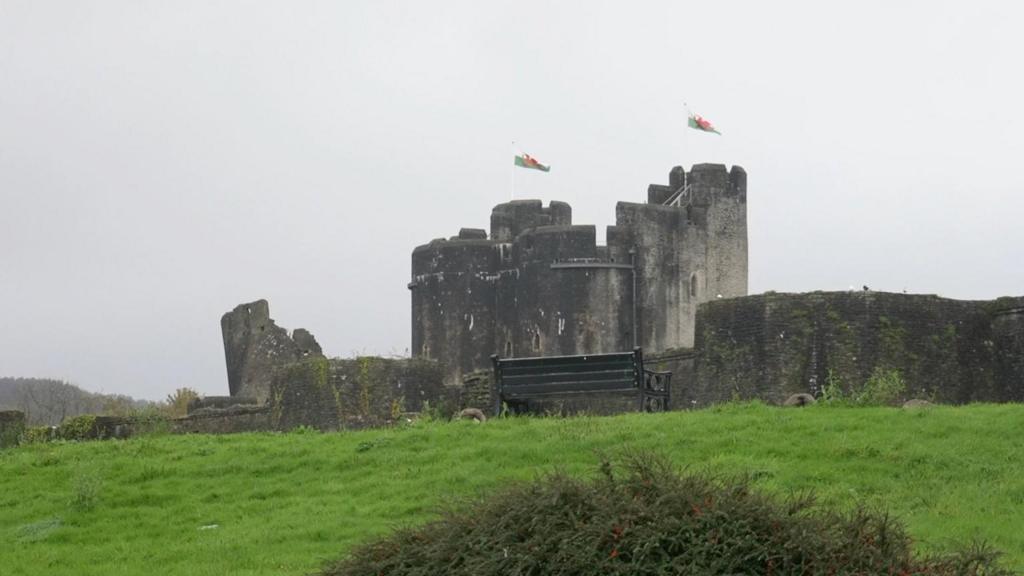The valleys of South Wales are steeped in the history of the Labour Party, perhaps more so than anywhere else in the UK.
Keir Hardie, a pivotal figure in the party’s founding, secured his parliamentary seat in Merthyr Tydfil in 1900.
Aneurin Bevan, the architect of the NHS, was elected as the MP for Ebbw Vale in 1929.
Even as the so-called Red Wall – formerly reliable Labour constituencies across the north of England and the Midlands – shifted, largely to the Conservatives, much of South Wales remained loyal to Labour.
While the Red Wall and other areas have since swung back to Labour, the political landscape now appears to be shifting in Wales.
Ahead of a by-election for the Welsh Parliament in Caerphilly, local sentiment, polling data, and the prevailing mood within the parties suggest significant changes may be underway.
Conversations with residents reveal a deep-seated frustration.
Many perceive a lack of tangible progress.
There is also a recurring sense of a declining community spirit: a feeling that the ties that have long united the town and the surrounding area are weakening.
This trend, which began with the closure of coal mines and the decline of heavy industry, has continued, according to some, as increased reliance on digital devices leads to greater social fragmentation.
Could this be contributing to political volatility and a decline in traditional party loyalty?
Whatever the reasons, Labour’s outlook in Caerphilly is cautious, even on their most optimistic days.
In Caerphilly, they represent the political establishment, controlling the council, the Welsh devolved government, and the UK government.
This dominance can present challenges for the Welsh Labour candidate.
Richard Tunnicliffe, a book publisher, has recently campaigned to keep local libraries facing closure open.
However, the very libraries he is defending are managed by the local Labour council. A difficult situation.
This scenario exemplifies the potential consequences for a party with such long-standing and widespread political influence.
It is perhaps unsurprising that Reform UK and Plaid Cymru are optimistic.
Anecdotal evidence suggests they have significantly more campaign posters displayed than Labour.
They also appear to be more upbeat and energetic in their campaigning.
Reform UK is a major factor in this shifting political landscape.
As has often been the case in recent months, they are forcing their rivals to respond to their actions.
Party leader Nigel Farage has visited the area twice, attracting large crowds.
However, the presence of a security guard at their campaign office highlights the strong opinions, both positive and negative, that they provoke.
Some are angered by their focus on immigration, in a region with relatively low immigration levels.
Reform’s candidate Llŷr Powell argues that they offer a fresh alternative, untainted by the criticisms directed at Labour and the Conservatives.
However, they also face their own challenges in Wales.
The party’s former leader in Wales, Nathan Gill, has admitted to accepting bribes to make pro-Russia statements while serving as a Member of the European Parliament.
He is expected to be sentenced next month.
Powell has stated that Gill should face the full force of the law.
Lindsay Whittle, the Plaid Cymru candidate, is a seasoned campaigner.
He has contested ten general elections and every devolved election for over a quarter of a century, but has yet to secure a victory.
He has served as a local councillor for almost 50 years.
Whittle believes that the apparent decline in Labour’s support is unprecedented.
He is optimistic and believes he can win in a close contest with Reform UK.
Plaid Cymru is allowing itself to dream, buoyed by supportive polling data, that it could potentially lead the Welsh government after next May’s devolved elections across Wales. They view Reform as their main competitor.
However, some of Labour’s opponents worry that they may be underestimating what they fear could be a new phenomenon – what one figure described as “shy Labour voters.”
Could some voters be hesitant to express their support for Labour, or claiming to be undecided, but ultimately vote for the party? Time will tell.
The Welsh Conservatives, in a region where they have traditionally struggled, find themselves further marginalized, again due to the rise of Reform.
It is perhaps unsurprising, given that former Conservative cabinet minister Sir Jacob Rees Mogg has suggested that Conservative voters in Caerphilly should consider voting for Reform to prevent a Plaid Cymru victory.
He also suggests that Labour supporters should back Reform for the same reason.
Both of Westminster’s major parties – Conservatives and Labour – are feeling the pressure in this area.
The Liberal Democrats, the Green Party, and other parties are also competing for votes.
A full list of the candidates standing in the by-election can be found here.
As mentioned, elections for the Welsh Parliament, the Senedd, will take place across Wales next May.
By Friday morning, we may have the first significant indication of a potentially major shift in the political landscape.

